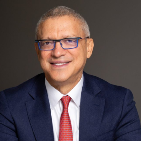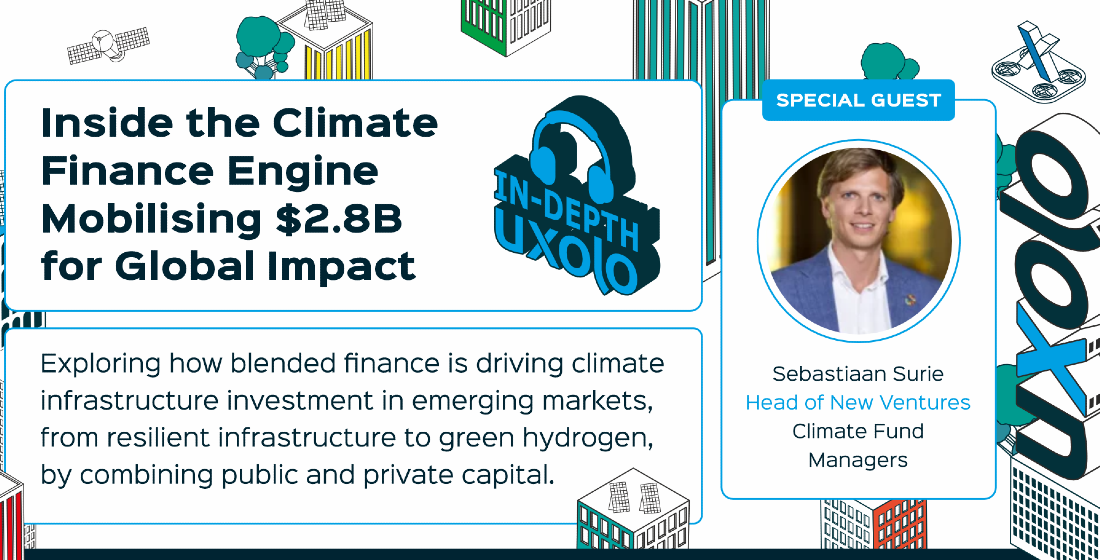Mobilisation is starting to reach its potential
New products and new partnerships are key to mobilising greater volumes of private capital for climate and development purposes. This is particularly important in middle-income markets where decarbonisation is challenging, as well as in frontier markets.

The international development community has been banging the drum on mobilisation – getting private capital flowing to meet climate and development challenges – for several years. And because this rallying cry has stayed the same, it is easy for the weary observer to imagine that not much is changing.
But the conversations I had at October’s World Bank and International Monetary Fund Annual Meetings, both with private investors and across the development finance system, convinced me more than ever that there’s real momentum behind private finance mobilisation.
We are seeing new strategies and products, including the IFC’s ground-breaking $510m securitisation of its loans, a new model that will allow it to raise capital from institutional investors. Another example is the IDB Group’s Reinvest+, which will acquire assets from the local private sector and repackage them for sale to global asset managers, allowing the original investors to recycle their capital for reinvestment.
These innovations can be replicated by other development finance institutions and will sustain the acceleration in volumes of private investment being mobilised that we have seen in the last couple of years.
At British International Investment, we have been thinking hard about where we can best attract private capital to where it’s needed most. Mobilising the private sector has been part of what we do for many years. But until relatively recently, we had not singled it out as a strategic priority. In the current global climate, that had to change.
A couple of years ago, we took stock of the different options available to us. We created a concessionary capital facility to unlock private investment. More recently, we commissioned external experts to draw lessons from the experiences of other DFIs and MDBs and assess their application to BII.
The first area where we will deepen our focus is mobilisation at scale. This involves connecting the deep pools of global capital with markets where there is the greatest need for finance, but where frictions prevent that finance from flowing.
Our proximity to London and the financial centres of Europe means we are well placed to help close the gap between what large institutional investors seek, and the investment opportunity in our markets. We are working with the UK Government’s EMDE Investor Task Force, which includes some of the biggest asset owners and managers, to overcome those barriers.
The greatest need for large volumes of capital is for climate investments in large carbon-intensive middle-income countries, where the pace of their energy transition is of global significance. To help create opportunities that meet investors' expectations, we launched an initiative that called on private investors to come up with new mobilisation proposals. The £50 million ($65 million) scheme attracted 27 proposals and we recently announced the first winner, a unique fund with BlueOrchard.
We also recognise that to mobilise private capital at scale, DFIs themselves must work more closely in partnership with each other, pooling their assets and standardising processes to simplify the creation of blended finance structures. At the World Bank meetings, I was pleased to sign an agreement with FinDev Canada, the Canadian DFI, to enhance our concessional finance cooperation. The partnership aims to lower barriers for private investors and accelerate capital flows toward sustainable development.
At the same time, the global push to mobilise private investment will fail to solve the world’s greatest development challenges if it only focuses on places where investment opportunities are already close to meeting the requirements of global asset managers.
DFIs like BII also need to help businesses in more frontier markets attract investment from commercial sources. In these markets investments are smaller and private investors are not the initial sources of capital. Yet they are the necessary first steps in the long-term journey towards eventually mobilising private investment.
The rhetoric around mobilisation often emphasises the large sums of money managed by global institutional investors, but this can overshadow the importance of local financial sector development. In frontier markets it can be more important for long-term growth and macroeconomic stability to find ways of putting domestic savings to work. The scale and nature of investment opportunities in these countries is also often more naturally suited to local investors, which also do not need to worry about foreign exchange risk.
BII already has a track record of investing successfully - including mobilising domestic capital - in frontier markets. For example, Growth Investment Partners Zambia, which we founded to fill the gaps left by conventional models to finance SMEs, is already being co-financed by the National Pension Scheme Authority, the country’s largest pension fund, providing an avenue for local savings to be deployed into productive use. We’ve also partnered with the Dutch and French DFIs, FMO and Proparco, to set up the Africa Resilience Investment Accelerator, to uncover and develop investment opportunities in African frontier markets, which are among the hardest investment destinations in the world.
I am excited to see what BII can achieve in the coming years, as we deepen our efforts to mobilise investment. But mobilising investment at scale calls for DFIs to work together. Only by working with our partners in the development finance ecosystem can we maintain the momentum to mobilise the private capital that is needed.
Leslie Maasdorp has been chief executive officer of British International Investment since January 2025





